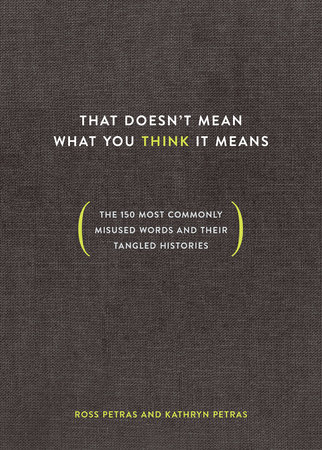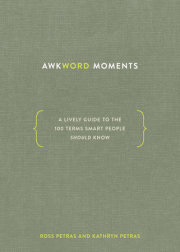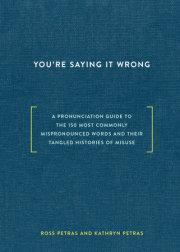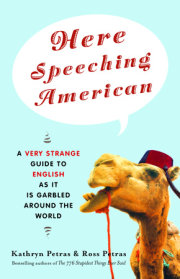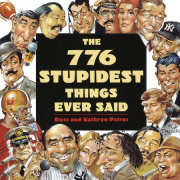INTRODUCTION
Words bounce. Words, if you let them, will do what they want to do and what they have to do. —ANNE CARSON, AUTOBIOGRAPHY OF REDThis book is about words that aren’t doing what they want to do because we’re not letting them. It’s really a word liberation book—letting those words be the words they were meant to be.
It’s about how we misuse the English language and use the wrong words that don’t mean what we think they mean. It’s not only about mistakes, but about correcting those mistakes, and discussing if they’re even mistakes at all. In short, it’s about the 150 most commonly confused, abused, questioned, and misused words and phrases in the English language, according to surveys, dictionaries like
Merriam-Webster’s, usage panels like the
American Heritage panel, and top word experts like Steven Pinker and Bryan Garner. Each entry includes examples of word misuse from the media along with short histories of how and why these mistakes have happened, as well as some of the (often surprisingly nasty) debates about which uses are mistakes, which aren’t, and, finally, how to use these words correctly.
These are the words that educated people most often misuse, are embarrassed about misusing, and want to use correctly. Some of them are what are sometimes called
bubble words— words of which you are sure you know the meaning, but you actually don’t. Others are
homophones —members of the always confusing sound-alike- but- mean- different group. Still others are
paronyms, or what some people more colloquially call “confusables” because,
yes, they’re confusing on account of they sound similar (like
mitigate and
militate or
discomfit and
discomfort) but yet again mean different things.
These are all different forms of
catachresis —the technical term for saying something that doesn’t mean what you think it means.
***
Copyright © 2018 by Ross Petras and Kathryn Petras. All rights reserved. No part of this excerpt may be reproduced or reprinted without permission in writing from the publisher.




